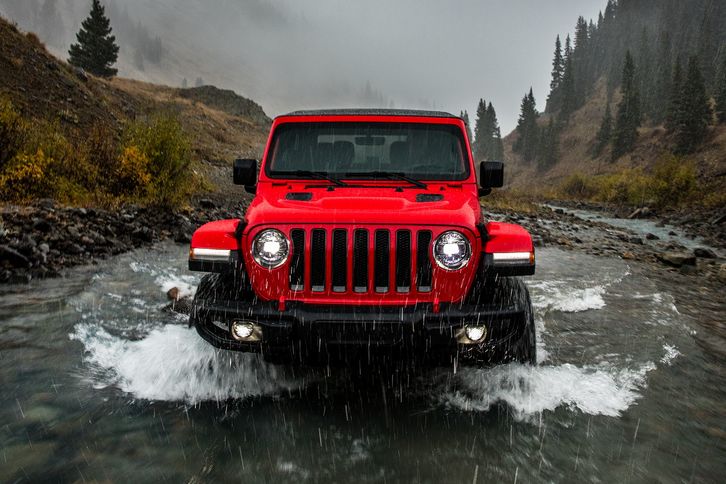All New 2018 Jeep Wrangler Fuel Economy
Posted on July 30, 2020

The Jeep Wrangler is a good example of a vehicle where fuel economy probably isn't at the top of the list of priorities of its potential buyers, but it still wouldn't be a good look for it to stand still on fuel efficiency with the onset of an all-new model. As we now have the all-new 2018 Jeep Wrangler, let's take a look at its engines and fuel economy to see how things have changed with the arrival of a new-generation of this most iconic of Jeep SUVs.
Powertrains
We now have two engines to choose between in the Wrangler, which are a 2.0-litre turbocharged inline-four mated to an eight-speed automatic transmission, and a 3.6-litre Pentastar V-6 that can be mated to the automatic or a six-speed manual transmission. There are going to be further options in future, but we'll look at those later.
The 2.0-litre turbo-four is totally new to the Wrangler this year, and it develops a very useful 270 horsepower and 295 lb.-ft. of torque at the same time as offering better fuel economy than the V-6. The 3.6-litre Pentastar V-6 doesn't ignore either though, as it now features Engine Stop-Start (ESS) technology to avoid wasting fuel when stopped at the lights or in traffic. Although it delivers 15 more horsepower than the 2.0-litre unit, the turbo-four actually has 35 lb.-ft. more available torque than the V-6.
Unlike most vehicles that would consider themselves to be rivals of the Wrangler, there's no messing around here with any two-wheel drive options. The Wrangler is exclusively four-wheel drive, which is how it should be and how most fans of this legendary vehicle would want it to stay.
Fuel economy
If you go for the traditional V-6 under the hood of your new Wrangler it will be rated at 12.9 L/100 km in the city, 10.2 L/100 km on the highway and 11.7 L/100 km combined, although the larger, heavier Unlimited models will be a little less efficient. That's already a notable improvement on last year's respective ratings of 14.2/11.0/12.8 L/100 km. But if you opt for the new 2.0-litre powerplant those numbers can be as good as 10.3 L/100 km in the city, 9.6 L/100 km on the highway and 9.9 L/100 km combined.
Upcoming options
Although it's not yet available, if you're prepared to wait until 2019 the Wrangler will be available for the very first time in Canada with a 3.0-litre turbodiesel that will bring another dimension of fuel economy to the Wrangler. And further down the line in 2020 there's even going to be a plug-in hybrid that will completely change the way we view the Jeep in terms of its fuel efficiency.

For more details and to schedule a test drive in the all-new 2018 Jeep Wrangler, don't hesitate to get in touch with us here at Caledon Chrysler.
